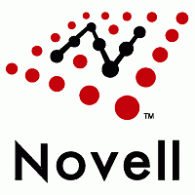Anyone who has worked with Technology for even a short period of time would have encountered a fair number of "Losers & Lemons". For some of us, providing a huge list of these would not take too much of an effort. Sadly, some of these products started out their lives as very decent and successful solutions (the first three listed below are good examples of this), but failed to take note of customer and market changes, let alone their competitors, who would eventually eat their lunch. Here is my short list, in no particular order:
This web browser was founded in 1994 in Silicon Valley and dominated (90%) the browser sector. In a now famous antitrust lawsuit, it won against Microsoft, with implications that still influence the industry. While Netscape won the battle, it eventually was to lose the browser war — But not before AOL bought it for $4.2 billion.
Novell NetWare
Novell's File and Print services used Novell DOS (formerly DR-DOS) as a boot loader. This was similar to MS-DOS, but came from the acquisition of Digital Research in 1991.
Novell did very well in the 1980s. It vastly expanded its market share and by 1990 had an almost monopolistic position in this sector for any business requiring a network.
With this market leadership, Novell began to acquire and build services on top of its NetWare operating platform. These services extended NetWare's capabilities with such products as GroupWise.
In 1995, Microsoft was including network capabilities within all their own platforms, and led to a steep decline in Novell's market share. By 1999, Novell had lost the battle, with Microsoft now dominating print and file services.
Alta Vista
This pre-Google era Search Engine was founded in 1995 and dominated the market for many years. No one seems to know why such a good product ended up being so poorly neglected and lacking in vision.
Lotus Notes
Launched in 1989 it suffered from being rather sluggish, lacking in features, unstable, and with poor mobile support. Yet amazingly (and with massive support from its owner IBM), became one of the largest e-mail clients in the world with over 100 million licenses sold.
As a one time user of Notes myself, I am honestly amazed that it still survives to this day. Recently IBM handed over all future development (Notes as well as Domino) to HCL Technologies of India, so maybe an exit is already in the making. Clearly this client software, should have been permanently retired decades ago!
Microsoft Windows ME, Vista & 8
All of the above three Microsoft OS versions could clearly be defined as total failures. Many corporate customers refused to deploy them, and they were to have rather short shelf lives as Microsoft clamored to replace them. Luckily Windows XP, 7 & 10 were to restore customers confidence, though not before Apple was to take full advantage of these lemons and take market share, even within the corporate sector where they had never really succeeded before. Microsoft seldom really seems to want to listen to their customers, and with the growth in Mobile Technology (See Below: They missed the boat completely) seem destined to be a far less significant force in a sector it once dominated.
Windows Phone
In 2010, three years after the launch of the 1st Apple iPhone, and two years after the 1st Android devices, Microsoft launched Windows Phone 7. This proved to be a very costly delay, this as most developers and consumers were already fully committed to the iOS and Android ecosystems.
To make matters worse, in 2014, in a desperate bid to reverse their mobile "misfortunes", Microsoft acquired Nokia's handset unit which would ultimately result in billions of dollars in writeoffs only a year later.
Due to the total lack of consumer demand, in 2017 Microsoft announced the discontinuation of any new development. This was to be the final nail in the coffin for Windows Phone. Subsequently Microsoft sold the Nokia handset business to a Finnish company called HMD Global Oy in 2015 and the Nokia brand has made a strong return to the market using Android technology exclusively.
Google Glass
Few gadgets were received with as much buzz as Google Glass, the "smart-spectacles" that Google unveiled in 2012. Google had ensured that this would be the most-hyped gadget launch of all time. But all for naught: The product had to be shelved just three years later in 2015.
What went wrong? Its high price tag ($1,500) and complete failure to ensure privacy kept it from going mainstream. Also, this product made it very easy to secretly record video, which prompted many businesses, bars & restaurants etc. to ban the gadget. Also, wearing the product made one look quite ridicules and quickly gave rise to the term “Glasshole”.
Google (and others) learnt a valuable lessons about wearable technology: Nobody likes to be recorded and monitored without their knowledge!







No comments:
Post a Comment